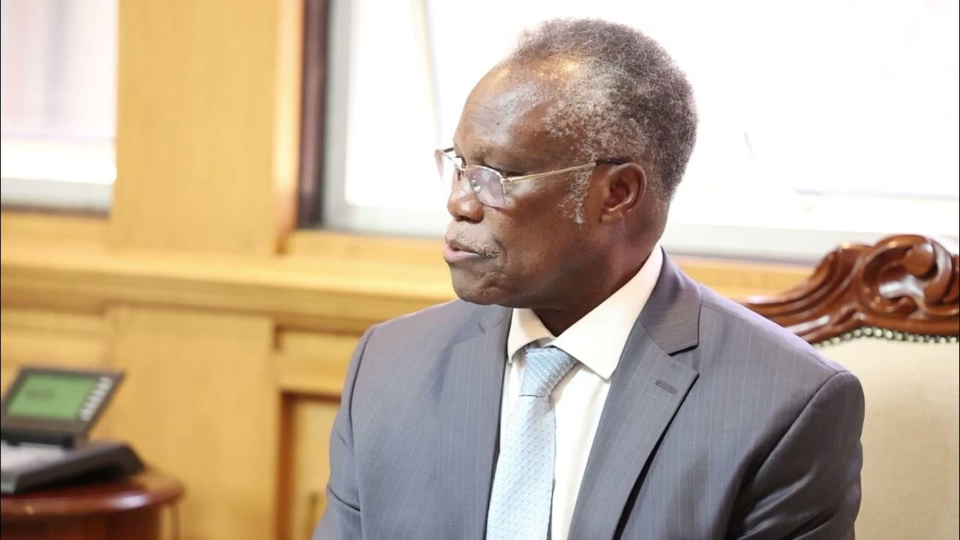Petition Seeks Removal of National Cohesion and Integration Commission Chairperson Samuel Kobia
A petition has been filed in Kenya, calling for the removal of Reverend Dr. Samuel Kobia, the Chairperson of the National Cohesion and Integration Commission (NCIC). The petition, lodged by a group identifying as Chama cha Mawakili, raises concerns about Kobia's leadership and the commission's recent actions, particularly its approach to regulating political speech ahead of the 2027 general elections.
The NCIC, a statutory body established under the National Cohesion and Integration Act of 2008, is tasked with promoting national unity, mitigating ethnic and political conflicts, and combating discrimination based on ethnicity, race, or religion. Kobia, a seasoned mediator with a background in peacebuilding and conflict resolution, has led the commission since his appointment by former President Uhuru Kenyatta in 2019. His tenure has focused on fostering dialogue platforms to encourage peaceful coexistence and reconciliation among Kenya's diverse communities.
The petitioners argue that the NCIC, under Kobia’s leadership, has overstepped its mandate by classifying certain words and phrases used in political campaigns as hate speech. They contend that the commission’s decision to ban terms such as "hatupangwingwi," popularized during recent political rallies, infringes on freedom of speech. The group claims that these restrictions risk stifling political discourse and unfairly target certain politicians, potentially undermining democratic expression. They further assert that the NCIC’s "wall of shame" initiative, which publicly names individuals accused of violating codes of conduct, lacks transparency and due process.
Kobia has defended the commission’s actions, emphasizing the need to curb inflammatory rhetoric that could destabilize Kenya’s fragile social cohesion. In recent statements, he highlighted the NCIC’s commitment to enforcing the law impartially, noting that the commission has secured convictions in several hate speech cases. He has also pointed to the agency’s efforts to promote peace, such as the 2012 Nakuru County Peace Accord, which helped reduce ethnic tensions following the 2007-2008 post-election violence. Kobia has urged political leaders to prioritize tolerance and respect for divergent views to prevent a return to past conflicts.
The petition comes at a time of heightened political tension, with the 2027 elections looming. Critics of the NCIC have questioned its impartiality, with some alleging that its actions disproportionately target opposition figures. In response, Kobia has reiterated that the commission operates without bias, treating all Kenyans equally regardless of political affiliation. He has also confirmed plans to pursue legal action against individuals who ignore NCIC summons, underscoring the commission’s authority to recommend arrests through the Directorate of Criminal Investigations.
Supporters of Kobia praise his extensive experience in mediation, including his roles as Ecumenical Special Envoy for Sudan and South Sudan from 2010 to 2012, Chancellor of St. Paul’s University from 2007 to 2018, and General Secretary of the World Council of Churches from 2004 to 2009. They argue that his leadership has strengthened the NCIC’s role in fostering national unity and addressing ethnic divisions.
The petition has sparked a broader debate about the balance between free speech and the prevention of hate speech in Kenya’s polarized political landscape. Legal experts suggest that the court’s ruling on the petition could set a precedent for how the NCIC operates in the future, particularly in regulating political expression during election periods. As the case progresses, it is likely to draw significant attention from political leaders, civil society, and the public, all of whom have a stake in ensuring Kenya maintains both freedom and stability.
The court is expected to review the petition in the coming weeks, with a hearing date yet to be announced. Meanwhile, the NCIC continues its work, including research on national cohesion and partnerships with organizations like the Kenya Broadcasting Corporation to promote peacebuilding initiatives. The outcome of this legal challenge could reshape the commission’s approach and influence public trust in its mandate to unite the nation.


